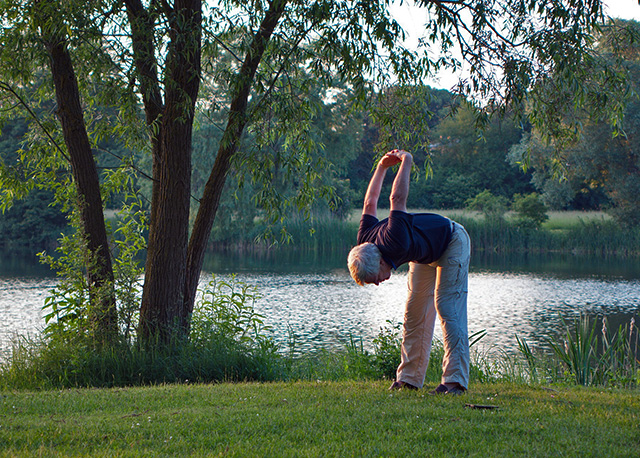Sport, according to experts, directly improves our health. It influences our mental health, as well as many other positive effects on the human body. Physical activity keeps the body in shape and plays an essential role in disease prevention, minimizing memory loss, reducing cholesterol, and decreasing the risk of developing diabetes.
Many of us have become accustomed to a sedentary lifestyle, which is detrimental to our health. As a result, it is critical that we, current and future generations, continue to prioritize sports because they help keep us healthy.
 Sport helps to prevent cognitive decline
Sport helps to prevent cognitive decline We've compiled a list of the actual long-term health benefits that sport offers when practiced daily:
1. Sport helps to strengthen our bones
The result of moderate and consistent physical activity is simple: it strengthens the bones by increasing bone density. Bones are subjected to minor shocks and pull during physical exertion. And they have the capacity to improve their ability to repair themselves and grow stronger. However, because bones renew themselves slowly, the effect would only be noticeable after several months of physical training.
2. Sport helps to prevent cancer and metabolic diseases
Even in good health, sport allows a person to reduce the risks associated with cancer, particularly breast cancer for women (by 40%) and prostate cancer for men (by 50%).
Sport can also combat or regulate metabolic diseases such as diabetes or cholesterol, which are symptoms of deficiencies or disturbances in the body. Exercising for 30 minutes to an hour daily would be sufficient to avoid metabolic syndrome. This is the bare minimum amount of activity; maintaining a consistent and higher activity level would be even more beneficial.
3. Team sports increase long-term happiness
Athletes who participate in team sports are healthier — and happier. One study discovered that physical activity (specifically, sports participation) significantly impacted participants' life satisfaction. Athletes may feel a sense of belonging when they are a part of a team. Social interaction increases happiness by instilling strong feelings of self-identity.
4. Sports can help you avoid heart disease
One of the primary reasons for death is cardiovascular disease. The risks increase when we remain inactive for a long time. Physical activity can protect and strengthen the heart in the long run by strengthening the cardiovascular system. Exercise helps to reduce the risk of clotting and high blood pressure and rule out the possibility of a heart attack.
Physical exercise is recommended for people with cardiovascular disease as long as it is tailored to their physical condition. Some tests must be performed before the doctor can recommend exercises tailored to the patient's medical conditions.
5. Sport helps to prevent cognitive decline
Memory, sleep, and stress: physical activity has a pronounced positive effect on cognition due to improved oxygenation of the brain and muscles. Indeed, the more muscles are used to exercise, the less energy they will require to do their job in the long run.
Another confirmed hypothesis is that sport brings people joy and satisfaction: it reduces anxiety and depression and provides a sense of well-being.
6. It is essential to move at any age
Sport is recommended for people of all ages (children, adults, seniors) and involves people of all generations. Previously, we were referring to bones, which become brittle with age. We are more likely to get a fracture if we do not exercise regularly. It is critical for the elderly to move regularly. There are, of course, specific recommendations for people over the age of 65.
The youngest are the most likely to participate in high-intensity sports. Sporting activities should be modified for people aged 40 to 50. Softer sports that promote muscle stretching, such as fitness or swimming, are preferred in this case. Walking is also an excellent way to stay in shape.
Bottom Line
To summarize, you may not realize it, but sport is a great way to socialize and build relationships. Going to the local gym or taking group lessons, will allow you to interact with new people, especially if you are an expatriate in a country. It is up to you to find the sport that best suits your needs and lifestyle!
Related Pages
- Guide to Living Healthily
- Active Lives, Brighter Futures: The Power of Outdoor Kids Camps vs. The Digital Indoors
- Impact of Gaming on Mental Health
- The Benefits of Physical Activity for our Brain
- Benefits of Sports to Improve Mental and Emotional Health


 Current Events
Current Events